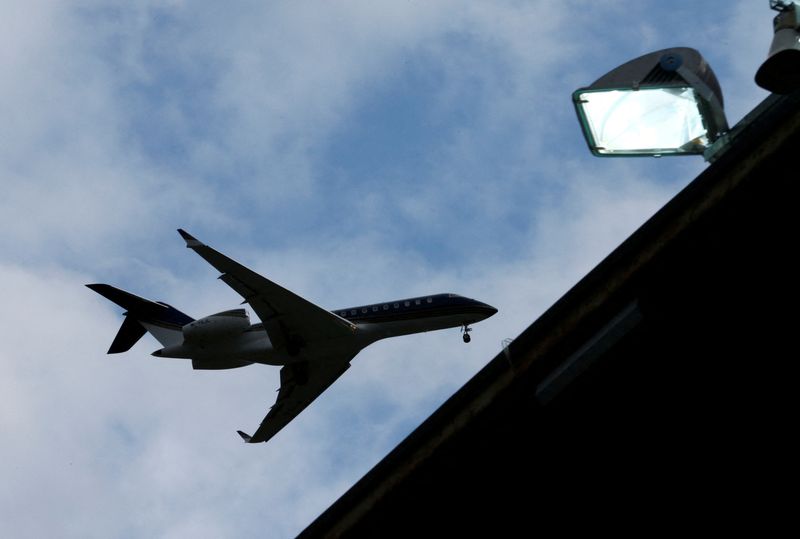By Allison Lampert and Aishwarya Nair
(Reuters) -Canadian business jet maker Bombardier (OTC:BDRBF) Inc said on Thursday it would increase production of its strongest-selling aircraft and forecast higher deliveries, after reporting an adjusted quarterly profit.
Business jet makers are ramping up production on higher demand from wealthy travelers opting to fly private during the pandemic, but broader industry supply-chain hiccups, labor shortages and recent surges in COVID-19 cases remain challenges.
Montreal-based Bombardier said this year it expects customers to take more jets than the 120 corporate planes it delivered in 2021, and would raise production of medium and large aircraft, with a focus on its popular Challenger line.
"Looking ahead, we are positioning ourselves to increase the number of deliveries by another 15-20% as soon as 2023, while maintaining a sharp focus on balancing longer-term production increases with the pricing environment," said Bombardier Chief Executive Eric Martel in a statement.
Martel later told reporters that while the supply chain issues it faces are "manageable," they generally involve smaller suppliers who are trying to rehire workers laid off during the pandemic.
"When you look at the root cause of those issues it is mainly the smaller suppliers," he said.
Martel said a tax on luxury items being drafted by Canada's government affected about a handful of orders, and could impact employment "at some point," although the country remains a small market for Bombardier's jets.
In 2021, Bombardier generated cash flow of $100 million from continuing operations.
It expects free cash flow to be greater than $50 million in 2022, a forecast Desjardins analyst Benoit Poirier describes in a note to clients as "very conservative."
Business jet revenues are forecast to rise to more than $6.5 billion in 2022 from $6 billion in 2021.

The company said it would host a virtual investor day on Feb. 24.
Bombardier reported an adjusted quarterly profit of 3 cents per share, helped by higher aircraft margins and cost reduction efforts. Analysts had expected a loss of 3 cents per share according to data from Refinitiv.